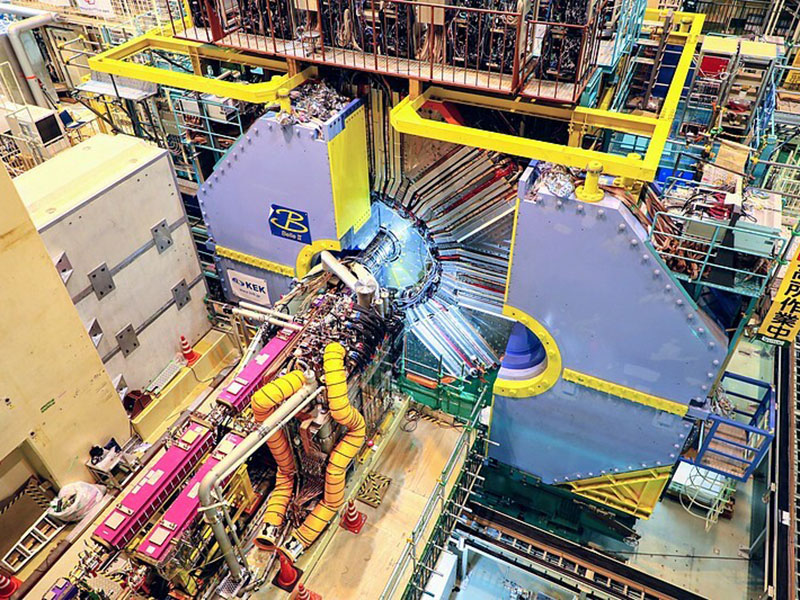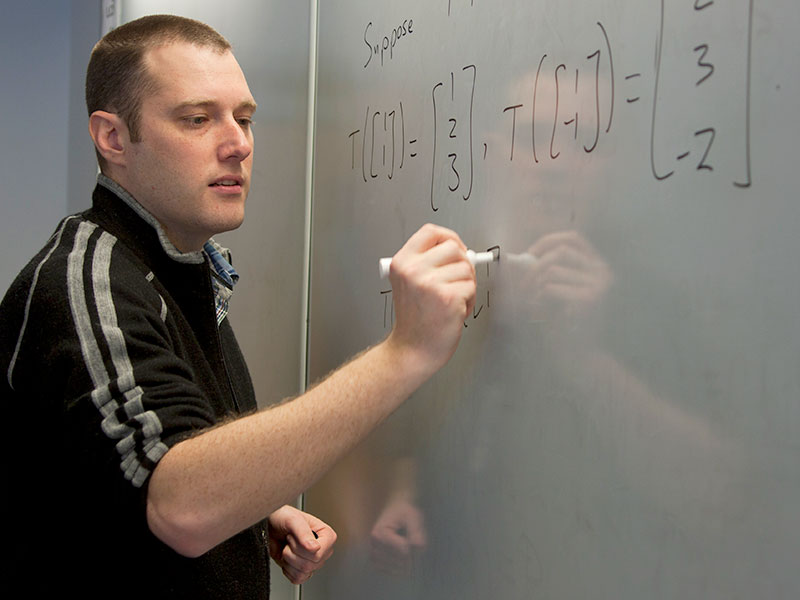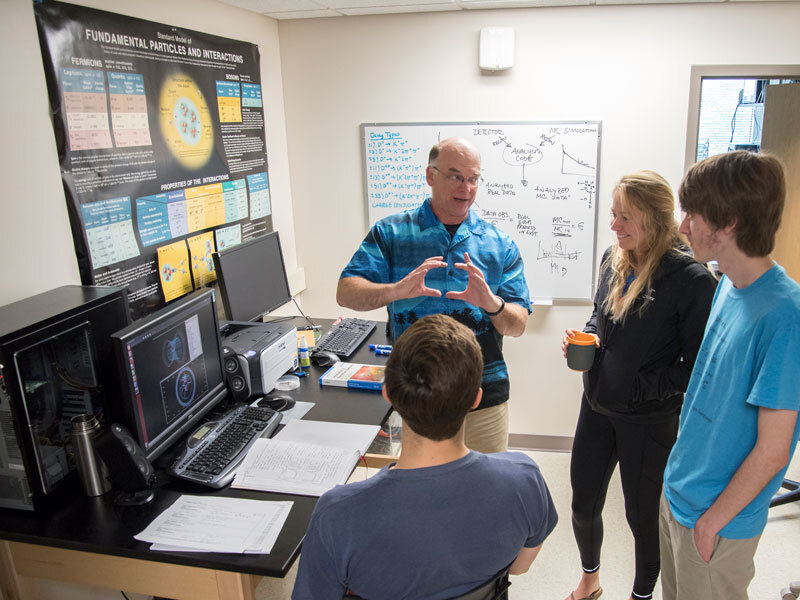Program Highlights
Research Opportunities
Research is at the heart of physics. Our faculty members are active researchers in various fields of physics. Their work lies at the cutting edge of current research, creating unique, graduate-level experiences for you as a student.
Study Astronomy
Astronomy is an active field of study within the physics department. Utilize Luther’s impressive facilities to study the night sky. Take part in a long-term stellar monitoring project measuring the apparent brightness of 1,600 stars.
Impressive Facilities
As a physics student, you’ll spend much of your time in Valders Hall of Science. You’ll have access to many instructional laboratory spaces and research laboratories—like a six-telescope rooftop observatory and labs devoted to studying computational physics and elementary particle physics.
What You’ll Learn
Luther’s physics department provides a collegial and friendly environment that encourages curiosity about and appreciation of the physical universe. As a physics major or minor you will gain:
- An understanding of the physical universe and the roles of theory and experiment in developing knowledge
- Skills in performing conceptual and quantitative analysis
- The technical and analytical skills required in today’s workforce and graduate programs
- Expertise in designing and performing experiments to investigate physical problems and draw justifiable conclusions
- The ability to effectively communicate scientific ideas
Most physics majors join professors and other students in collaborative research projects. Many also secure off-campus internships to explore other areas of physics and engineering.

Careers and Outcomes
What do Luther physics grads do after graduating? Many go on to pursue advanced MS and PhD degrees, while others gain employment in a variety of careers.
Career Fields
- Physicist
- Engineer
- Medical Physics Resident
- Computer programmer/engineer
- Data Analyst
- Secondary School Teacher
Graduate Studies
- Physics
- Engineering
- Materials Science
- Astronomy and Astrophysics
- Mathematics and Statistics
- Environmental sustainability
International Research in Particle Physics
Luther College physics students take part in a global research project—a long-term particle physics experiment based at KEK in Japan. Luther is the only undergraduate college involved in this experiment.
Rossing Physics Scholars
Each year, the Thomas D. Rossing Fund for Physics Education awards scholarships to exemplary students in physics. Luther College has a long tradition of producing Rossing Physics Scholars. In the last 10 years, 12 Luther physics students received the award, speaking to the strength of our program. These scholarships are a good indicator of excellent outcomes after graduation.
“The monetary benefit of being a Rossing Physics Scholar is easily quantifiable. What’s less quantifiable is the personal meaning behind the award. Winning the Rossing Scholarship was incredibly affirming, a statement that I was capable of the things my older peers had done, which I aspired to do myself.” —Colin Weber ’20


